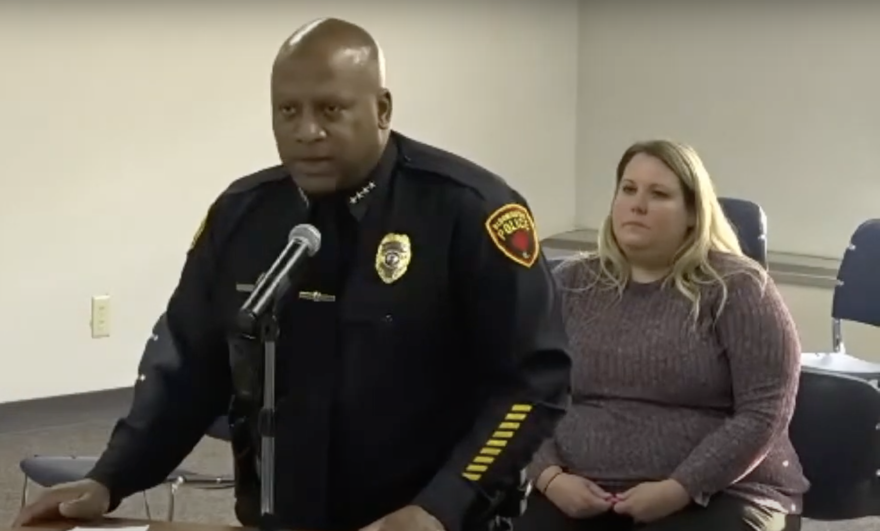The Bloomington City Council got an update on racial disparities in traffic stops at Monday's non-voting meeting.
Bloomington’s Public Safety and Community Relations Board (PSCRB) delivered a presentation at the Committee of the Whole meeting. The backdrop was an Illinois Department of Transportation study from 2020 showing that Bloomington Police were nearly seven times more likely to stop Black drivers than white drivers.
But PSCRB chair Dr. Ashley Farmer told the city council that BPD’s more recently collected internal numbers show a downward trend.
“If we see it trending downwards, then we know that something is working. If we see it going in the opposite direction, and once again we see six, seven times in disparity, then we know maybe this isn’t working so well anymore,” said Farmer.
IDOT has conducted yearly traffic stop demographic studies since 2004. Statewide, Illinois police were 2.7 times more likely to pull over Black drivers than white drivers in 2020.
In Bloomington, Black drivers were 50% more likely to receive citations and were 5% less likely to be found in possession of contraband during vehicle searches, according to the data.
At the meeting, Ward 9 council member Tom Crumpler asked BPD Chief Jamal Simington what BPD specifically does to address the disparity.
“We use (our traffic stop data) as a coaching tool for individual officers. It also coincides with some of the training,” said Simington. “We are really onboarding a new group of young officers, so they’re coming into the system being well-informed of the data.”
Overall, BPD received 21 complaints from the public last year — down from 32 received in 2021. In 2020, it received 22.
The PSCRB received three requests to review complaints last year. While the board will conduct secondary reviews of denied complaint appeals, PSCRB reviews determine only if BPD sufficiently followed its own internal procedures; it does not make determinations about the correctness of those procedures.
The PSCRB holds meetings on the first Thursday of each month, and receives public input on the first Thursday of every quarter. There are currently vacancies for adult and youth board members.


